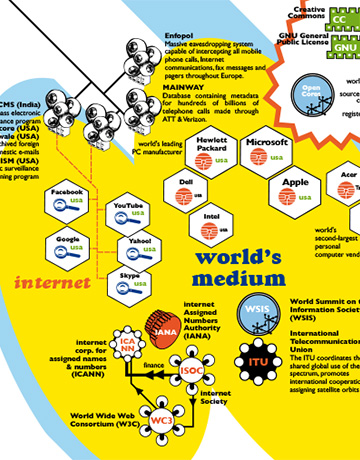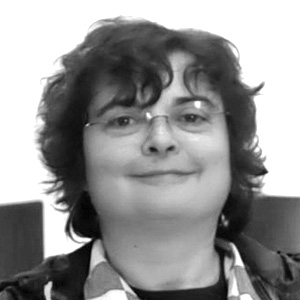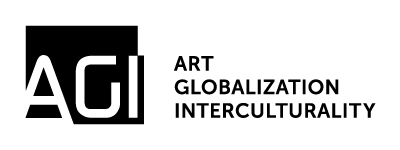Mutating Ecologies in Contemporary Art: Matter, Ethics and Subjectivity
II International Symposium
February 21, 2018, Barcelona, Spain
Organizing Team
Production and organization: AGI | Art Globalization Interculturality, Universitat de Barcelona
Director, coordinator & moderator: Christian Alonso, Universitat de Barcelona
In partnership with: MACBA | Museu d’Art Contemporani de Barcelona
Special Guest Speaker:
Dr. Anne Sauvagnagues, Université Paris Ouest-Nanterre La Defénse
Image credits:
Buréau d’Études, World Government 2013 (detail). Courtesy of the artists.
Full image here
Program
8:30 – 9:-00 am
PRESENTATION & INTRODUCTION
Anna Maria Guasch and Christian Alonso, Universitat de Barcelona
9:00 – 9:30 am
KEYNOTE TALK
Ecology of Images
Anne Sauvagnargues, Université Paris Ouest-Nanterre La Defénse
9:30 – 10:30 am
PANEL 1
11:30 am – 13:30 pm
Modulating Matters: Simondon, Deleuze and Guattari
Daniela Voss, Deakin University, Melbourne
Time spirals in the Anthropocene: an artistic approach to the visualization of environmental data
Quelic Berga, Pau Alsina, Javier Melenchon, Universitat Oberta de Catalunya
On air and imaginaires
Hanna Husberg, Academy of Fine Arts Vienna
Uter Project
Carles Garcia O’Dowd
PANEL 2
15:00 – 16:30 pm
Anomalous touch. On sym_poiesis and responsibility
Laura Benítez, EINA, Universitat Autònoma de Barcelona
Our plastic condition. Conscious resiliencies of the inside
Beatriz Regueira, Universitat de Barcelona
Oryza Collection. Hybrid fields of knowledge between art and agriculture
Chiara Sgaramella, Universitat Politècnica de València
Grafting. Notes on human and non-human neighbourhoods in the rural environment
Alfredo Puente, Fundación Cerezales Antonino y Cinia
PANEL 3
17:00 – 18:30 pm
Solarism | Animism. Lynch Kurosawa Tagaq
Radek Przedpełski, National University of Ireland Maynooth
Affective Nature or when desire matters
Begonya Sáez Tajafuerce, Universitat Autònoma de Barcelona
Community Learning Lab (Laboratori d’Aprenentatge Comunitari)
Claudia Villazón, Lukas Masewicz
Drones and Drums. Resistance, the final frontier
Ignacio Acosta, University of Brighton
PANEL 4
18:30 – 20:00 pm
Cartographing heterogenesis with Guattari
Jean-Sébastien Laberge, Université d’Ottawa
Borders in the Beyond: have you ever seen yourself from the other side of the wall?
Sergi Selvas
Conversation Between Species
Caterina Almirall, Quim Packard
Panel respondent: Julia Ramirez Blanco
 What role could philosophy play to the challenges posed by climate change, resource depletion and the diverse political and cultural crises our societies face in the 21st Century? How to identify the toxic effects of the logic of advance capitalism and neoliberal globalization in a cognitive, social and structural level? What kind of narratives, cartographies and figurations account for the fractures and contradictions of our times? How to reinvent subjectivity when trying to make it compatible with mutating universes of value? How can art, cultural becomings and institutional practice be thought in terms of environmental sustainability in the postnatural and posthuman, technologically-mediated era of the Anthropocene?
What role could philosophy play to the challenges posed by climate change, resource depletion and the diverse political and cultural crises our societies face in the 21st Century? How to identify the toxic effects of the logic of advance capitalism and neoliberal globalization in a cognitive, social and structural level? What kind of narratives, cartographies and figurations account for the fractures and contradictions of our times? How to reinvent subjectivity when trying to make it compatible with mutating universes of value? How can art, cultural becomings and institutional practice be thought in terms of environmental sustainability in the postnatural and posthuman, technologically-mediated era of the Anthropocene?
The II Symposium Mutating ecologies in contemporary art seeks to deepen on the value and the effectiveness of the philosophical tradition of vital materialism as a non-dualist model of political ecology that enables ways to imagine alternative forms of relation and political action. We will work departing from the elements that define its ethical-political project: the situated knowledge, the historicity of the body, and the question of the affects. This model of thought nourish current artistic imagination, modulating compounds made of forces and materials imbuing proposals that provide new ways of understanding, interrogating and transforming our relation with the planet and all living entities. They do so by visual, discursive and sensual strategies, experimenting with disciplinary confinements and generating new posthuman ethics and new posthuman politics.
The Symposium will be articulated around the opening talk of Dr. Anne Sauvagnargues (Université Paris Ouest-Nanterre La Defénse), which will be followed by communications previously selected through a call for papers. Anne Sauvagnargues is Professor of Philosophy in the Department of Philosophy at the University of Paris Ouest Nanterre La Défense. A specialist in aesthetics and the philosophy of Gilles Deleuze, she co-directs the collection ‘Lignes d’art’ with Fabienne Brugère for Presses Universitaires de France. She is the author of numerous works, including Deleuze and Art (Bloomsbury 2013), Artmachines: Deleuze, Guattari, Simondon (Edinburgh University Press 2016), and Deleuze. L’empirisme transcendental (Presses universitaires de France 2008, forthcoming with Edinburgh University Press).

Keynote Talk: Anne Sauvagnargues
Anne Sauvagnargues is Professor of Philosophy in the Department of Philosophy at the University of Paris Ouest Nanterre La Défense. A specialist in aesthetics and the philosophy of Gilles Deleuze, she co-directs the collection ‘Lignes d’art’ with Fabienne Brugère for Presses Universitaires de France. She is the author of numerous works, including Deleuze and Art (Bloomsbury 2013), Artmachines: Deleuze, Guattari, Simondon (Edinburgh University Press 2016), and Deleuze. L’empirisme transcendental (Presses universitaires de France 2008, forthcoming with Edinburgh University Press).
Ecology of images
This paper aims to present what I propose to call ecology of images as a processual development of desiring-machines and assemblages. Deleuze and Guattari, both singly and together, define any sign as an individuating encounter—what Simondon calls a ‘signal’—that gains consistency as a vital perspective, within a regime of signs or an ecological semiotics. Such semiotics are always plural, characterized by interactions between material, biological and social codings, between functional qualities and associated milieus. Therefore, desiring-machines are collective and not individual, ecological and not imaginary, milieus, ecological existential territories. These milieus become defined and diversified through expressive qualities as collective assemblages of habitation. Following Deleuze and Guattari, this spinozistic conception of signs seems to me both dietetic and political, and leeds to what I would suggest to call a becomology of regimes of signs, connecting linguistic, discursive signifier to asignifying material, including vital, technical, and social codings.
I will argue that a semiotics of this kind invites us to draw a connection between the Guattarian ritornello of The Machinic Unconscious and its development in A Thousand Plateaus, and the Bergsonian problematic of the image that Deleuze develops in his work on cinema. Henceforth, I define a image as a vital process of differenciation, which it is no longer subservient to the problematic of reproduction and sheds its status as copy of an original or imitation of a model. Liberated from this representative and reproductive function, one image reveals its productive potential : as sensory-motor individuation, a sensible center of indetermination tracing its perspective, unfolding its fan of perceptions, actions, subjective and material affections. These semiotics define zones of individuation in the fashion of Uexküll’s animal worlds, complex clusters of milieus, but also collectives modes of subjectivation, defining plural virtual universes of reference.
Venue
MACBA, Museum of Contemporary Art, Meier Auditorium
Plaça Joan Coromines, 08001 Barcelona
www.macba.cat
